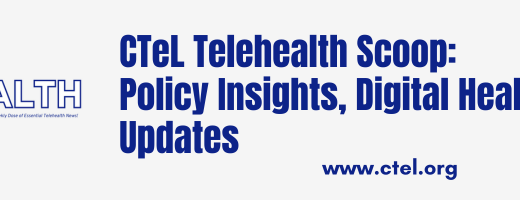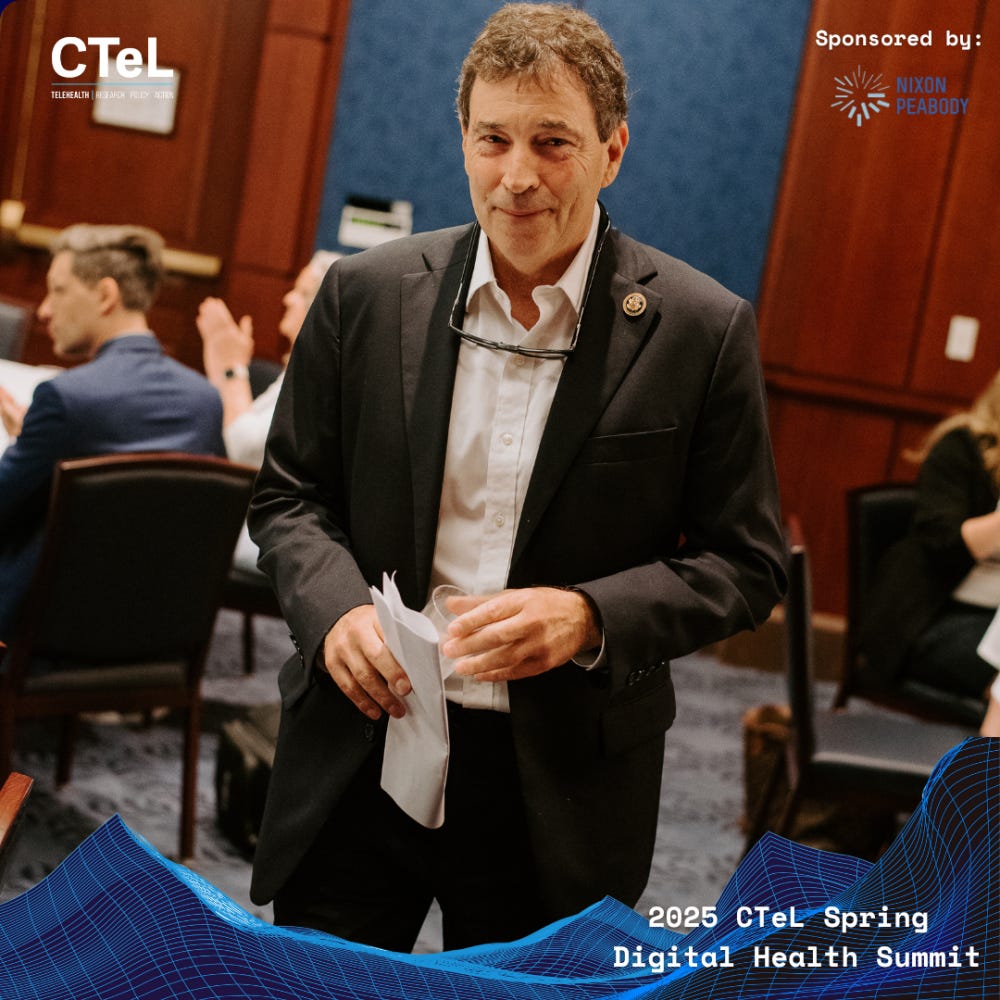Happy Friday the 13th! Don't be superstitious, the only thing you need to be aware of today is another wild week in digital health policy. From our own Summit buzz to AI getting certified, let's dive into the essential (and entertaining) news.
CTeL In Action: Summit Success & Future Optimism!
This week, CTeL was thrilled to host our bi-annual Digital Health Summit right here in Washington, D.C.! We brought together the brightest minds in the industry to tackle everything from AI and innovation to the nitty-gritty on telehealth costs and access barriers.
The highlight? A kickoff from Congressman Troy Balderson (R-OH), who shared his optimism that telehealth expansion will find a "legislative vehicle" to pass before the September 30th deadline. You love to hear it!
Experiencing some serious FOMO (Fear of Missing Out, it's a real condition!)? The cure is simple: visit www.ctel.org/membership to make sure you don't miss out on next year's powerhouse event!
Industry News: AI, Get Your Certification Ready!
Getting Certified: AI's New Gatekeepers? The Joint Commission is teaming up with the Coalition for Health AI (CHAI) to build a set of best practices for artificial intelligence in healthcare. The end game is a brand-new certification program. Soon, your friendly neighborhood algorithm might come with a shiny, evidence-based seal of approval!
Administration Action: EOs, Rollbacks, and AI Dreams
White House on AI Cybersec: 'Manage Vulnerabilities, Not Censor.' President Trump issued a new Executive Order amending previous cybersecurity rules. The White House says the goal is to refocus AI cybersecurity on finding and managing weak spots rather than "censorship." In a head-scratching side quest, the order also directs the government to revoke the use of digital identity documents... replacement TBD. What could go wrong?
Medicaid State-Directed Payments Get the Axe: The White House isn't playing around. A new memo directs CMS to roll back state-directed payments, a program giving states flexibility in funding their Medicaid programs. The memo's description of the program? "Waste, fraud, and abuse."
Friendly Reminder: The NIH Still Wants to Build 'Autonomous AI Beings'. In case you missed it, the NIH re-upped its Request for Information (RFI) on the agency’s grand AI strategy. They're still charting a path toward "fully autonomous, self-documenting biomedical AI beings." You have until July 15th to tell them what you think about our future robot doctors.
NIH Director Defends... $18 Billion in Cuts: Meanwhile, NIH Director Jay Bhattacharya was on Capitol Hill defending his agency’s budget request, which, you'll recall, calls for a staggering $18 billion in funding reductions.
Congressional Corner: Paying for Bills and Prior Auth Pains
How to Pay for Tax Cuts? Senate Eyes Medicare Advantage 'Upcoding'. Senate Republicans are reportedly looking at reforms to Medicare Advantage coding practices as a way to pay for tax cuts in their "One Big Beautiful Bill." They're targeting "upcoding"—the practice of making patients seem sicker on paper to get higher payments. This has also renewed calls to revise that old 1991 telemarketing law, which managed care plans say keeps them from texting beneficiaries.
GAO to CMS: Keep a Closer Eye on Prior Auth for Mental Health. A new Government Accountability Office (GAO) report recommends that Medicare should specifically target behavioral health services in its prior authorization audits. The goal is to ensure that these practices don't become a barrier to accessing critical mental health care.
E&C Looks to Bring Manufacturing Home: The House Energy & Commerce Committee held a hearing this week on strengthening the domestic health care supply chain, a topic that remains top-of-mind for preventing future shortages.
State Snapshot: Oregon Stands Up for Physicians
Oregon Tells Corporations: 'Hands Off Clinical Decisions!' Oregon just passed SB 951, a bill that tightens the state's "corporate practice of medicine" laws. It prohibits medical practices from giving up control of assets, business operations, and—most importantly—clinical practices or decisions. It's a major move to protect physician autonomy from corporate influence.













Share this post